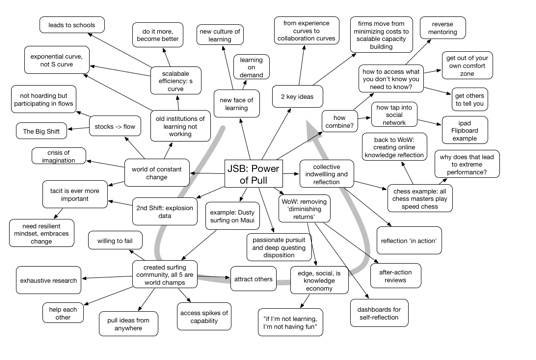We’ve been wrestling for a while about how to deal with the labeling problem. The problem is that when you mention learning to anyone but the L&D team, they immediately hear ‘training’ (and, frankly, too often so to does the L&D team). And, of course, really the issue is performance, but too often that can mean machine throughput or semi-conductor yield or something other than the output of the human brain. This has continued to be a barrier for having meaningful conversations.
I also want to address the broader suite of human brain outcomes: research, creativity, design, etc., as you’ll have read here before. The answers aren’t known, and this is likely to be the important work. Other than creating a portmanteau, or making up a new word entirely, however, I’ve been at a loss for a label.
Recently, I’ve started talking about “big L learning”. ‘Inspired’ by the fact that the Liberal party in Australia is really the conservative party (leave it to the Aussies :), so they have to distinguish between big L and little l liberal, I’ve decided that perhaps we can distinguish between little ‘l’ learning and big ‘L’ learning. If nothing else, it might get someone to ask what I mean and provide an opportunity to open up the discussion.
Don’t get me wrong, I’m more than open to an alternate suggestion, but in the interim, I’m going to keep playing with this. I’ve been wrestling with this for years, and haven’t come up with anything better. I welcome your feedback.
